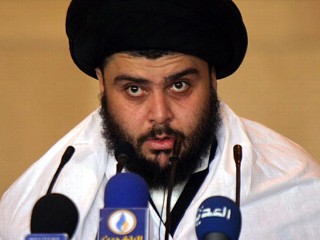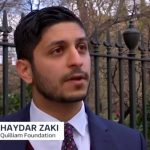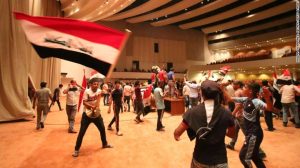By Haydar Zaki
Anti-corruption protests sweeping through a Middle Eastern country, spearheaded by an ultra-religious figure under the language of rights and equality – where have we heard this before? All one needs to do is look at the history of the Islamic Revolution in Iraq’s neighbour Iran to understand why I am deeply sceptical about current events.
In Iran, ultra-religious figures were able to capitalise on the unrest and disenfranchisement of the Shah, Mohammad Reza Pahlavi, to implement one of the most brutal theocracies in the region. It is with great sorrow and fear that I write that this could potentially happen to the land of my ancestors — Iraq.
Iraq had been stricken by the cancer that is corruption from its parliamentary representatives. They spoke of Iraq, stole from Iraq and invested their money in European cities like London, and in ventures such as real estate. Nepotism and a new air of arrogance dominated the new parliament and the general Iraqi public were all bearing witness to it. It was the fall of Mosul to ISIS which had really brought this to boiling point, prompting new calls from the people for an end to corruption and a reformed executive.
The people found answers in purging the former prime minister Nouri al-Maliki out of office, and bringing in the newly-elected PM Haidar al-Abadi. However, people realised soon enough that the corruption was so deeply entrenched that Abadi’s calls for reform were merely a drop in the ocean.
Cue Muqtada al-Sadr. The Shia cleric and militia leader was able to capitalise on the political unrest as the new hero against the corruption of the Iraqi Parliament, in part due to his prominent family name and lineage. Al-Sadr proceeded to pressure Al-Abadi with ultimatums, and subsequently led the recent protests.

However, Muqtada al-Sadr is not all good news for Iraq. He is seemingly driven by his own religious agenda. Al-Sadr is a man who had once condemned football as ‘haram‘ (forbidden in Islam) and went to undertake training in Iran under the regime of the former president, Mahmoud Ahmadinejad.
A new man coming back from Iran, Al-Sadr came as a newly polished leader who was able to garner mass support from the Iraqi populace under the banner of anti-corruption. However, his ultra-religious Shia identity has, as expected, alienated much of the other sects in Iraq and, intentionally or otherwise, has begun to create suspicions that this movement is just a means to impose a new macho Shia style of governance that, in much respect, emulates Iran.
If Muqtada al-Sadr is able to impose his religiously dominated politics into Iraq, it would spell bad news for the future of an already fragmented country. The issue with Iraqi politics is that sectarianism is so deeply entrenched, that signs of corruption and miscarriages of justice are rationalised by many in the Shia community as an ill of the political structures in place, while many Sunnis view it as a sectarian-driven agenda to punish them post Saddam Hussein. A new system of governance that is spearheaded by al-Sadr and parades its Shia identity will only aim to make these suspicions and the hostile atmosphere worse.
We have to start empowering the secularists in Iraq, who genuinely do not want to see their country further fragment and want a system of law that is uniform to each sect and respects the universal human rights of individual liberty. There are many of them, and Iraq deserves such a system to unite its sects – the anti-corruption movement which was born out of a need for a greater respect to the Iraqis must not be capitalised by movements with a politico-religious agenda.
With regards to foreign policy, I would recommend that we do everything we can to extend our influence in the region to ensure such a secular movement can take place. This would include helping our Iraqi allies in the fight against ISIS more, and providing humanitarian support, such as helping with the Mosul dam (which looks imminently on the brink of collapse). Not only would such actions pull away Russian president Vladimir Putin’s influence in the country, but renew Britain’s reach and ensure a stronger, secular movement that would diminish the calls for an ultra-religious style of government.
The idea that Iraq could go into the direction of an Iranian style of governance is not far-fetched, especially when I hear the ironic rebuttal that Iraq will never go that way as they have too much of a secular history/lifestyle. I would once again state that those who make such claims revise the history of the Iranian revolution.
 Haydar Zaki is the Quilliam Foundation’s outreach and Right2Debate program coordinator. Haydar has worked extensively in conducting outreach to further the values of universal human rights. Most recently, Haydar has a dominant role in the free speech campaign Right2Debate to encourage Student Unions to challenge bigotry, and not free speech.
Haydar Zaki is the Quilliam Foundation’s outreach and Right2Debate program coordinator. Haydar has worked extensively in conducting outreach to further the values of universal human rights. Most recently, Haydar has a dominant role in the free speech campaign Right2Debate to encourage Student Unions to challenge bigotry, and not free speech.
Visit the Right2Debate website here. Follow him on Twitter.

